- Home
- Joel Goldman
Final judgment lm-5 Page 2
Final judgment lm-5 Read online
Page 2
“My guy’s name is Avery Fish and he’s sitting right here, in case you hadn’t noticed. He’s not a terrorist or a dope dealer or a bank robber. He’s a grandfather and an active member of his synagogue who’s never been convicted of a crime. We’re not here to argue about your case against him. We’re here to make a deal.”
Samuelson turned to Fish. “Mr. Fish, I meant you no disrespect. I just want you to know that I can put you away for a long time, maybe the rest of your life depending on your health. You’ve got a good lawyer, but not even he is good enough to keep you out of the penitentiary if we don’t make a deal right now in this conference room. Do you understand that?”
Fish had a sudden image of Pete Samuelson wrapped in plastic in the trunk of his car. “I’m an old man, Mr. Samuelson. Don’t worry. You scared me. Talk to my lawyer.”
Samuelson nodded and reopened his file. He took out the page he’d already studied and slid it across the table to Mason. “Eighteen months, two hundred fifty thousand in restitution and a fine for another two-fifty.”
Mason ignored the page in front of him. “Let’s go, Avery,” he said, standing.
Fish looked at Mason, eyes wide. “Go? Where? We aren’t done. We haven’t made the deal.”
“We haven’t made the deal, but we are done. Mr. Samuelson is too proud of his case. He thinks he can bully you into taking a deal that’s no worse than you’d get at trial, where he’s got no better than a fifty-fifty chance at a conviction. He’ll be lucky to get the wiretaps into evidence, and I’ll bet when we start digging, we’ll find out that he made a sweetheart deal with those people in Florida to testify against you in return for their own time-share out of jail. Let’s go.”
Fish didn’t move, but he did sweat. A moist layer that bubbled onto his brow as his skin paled. His breath came in quick bursts. “I want to make a deal. Now,” he managed.
Mason had told Fish that this could happen when they met the day before. He predicted that Samuelson would come on hard and that they would respond by walking out, counting on Samuelson to back up rather than tell his boss that he blew the negotiations. The government’s case was strong but not invincible. Mason bet that Samuelson had been given orders to get rid of the case. No one liked sending old men to jail. Fish was supposed to follow Mason out the door, not fold and beg.
“You’re a smart man, Mr. Fish,” Samuelson said, the first hint of a smile leaking from the corners of his narrow mouth.
“Fortunately, he’s got a smarter lawyer,” Mason said. “If you want to negotiate, we’ll negotiate. But you can save the take-it-or-leave-it crap for somebody else. If my client wants the deal you put on the table, he’ll have to get another lawyer, and you know as well as I do, no lawyer is going to tell him to take that deal. I’m not selling him out. Avery, get your ass out of that chair!”
Fish pushed himself away from the table, still holding on to it. He rose, picking up his coat, his round shoulders sagging as Mason opened the door.
“Okay, Mason,” Samuelson said. “You made your fee speech. Everybody sit down and you tell me what you’re looking for.”
Mason nodded at Fish, who collapsed into his seat. Mason remained standing, one hand on the doorknob. “No jail time. Twelve months suspended with probation. A hundred thousand in restitution and a seventy-five-thousand-dollar fine.”
“You’re not sitting down,” Samuelson said.
“Not until I know if we’re in the ballpark.”
Samuelson ran his hand over his bald head, Mason catching the glow of sweat from his shiny pate. He had been right to call Samuelson’s bluff.
“Same ballpark, but still a long way from home plate. Sit down. I can’t do probation.”
“He won’t pay what you want without probation. That’s not negotiable.”
“Fine. I’ll give you something else that’s not negotiable. Money doesn’t buy probation.”
There was a knock at the door before Mason could answer. Dennis Brewer opened it, not waiting to be invited in. He was the FBI agent on Fish’s case: a tall, broad-shouldered, middle-aged man wearing an expensive dark suit and a flat expression on his ruddy face. The first time they met, Brewer had made it clear to Mason that he had more important things to do than screw around with a small-time con man like Fish. He shot the cuffs of his shirt to make the point, his gold cufflinks with diamond centers catching the light. Mason wanted to ask him, Who’s your daddy?
Brewer took two quick steps to Samuelson, bent down, and whispered in Samuelson’s ear, cupping his hand to shield what he was saying. Finished, he stood, giving Fish a hard stare.
“You’re certain?” Samuelson asked Brewer.
“Absolutely,” Brewer answered.
“Another emergency?” Mason asked. “Take your time.”
Samuelson frowned, the little light in his eyes dimming. “Not necessary. We’re done. Our deal is off the table.”
“Done? Why?” Mason asked.
“There’s a dead body in the trunk of your client’s car.”
FOUR
Clients never tell their lawyers everything. Mason knew that. Expected it. He tried different things to encourage their candor. He worked hard to build rapport that translated into trust. He provided a sympathetic audience of one ready to receive confessions without passing judgment. He extolled the sanctity of the attorney-client privilege, assuring his clients that their darkest secrets would remain locked in his ethical vault.
But he knew better than to be disappointed or surprised when a client held something back. It was a self-protective human impulse, the remnants of a primordial survival instinct. Knowledge is power. Confession is weak. Truth is a commodity to be bartered for freedom.
Avery Fish had raised the bar for holding back to new heights. A dead body wasn’t easy to overlook or ignore. One parked in the trunk of your car was positively unforgettable, however unmentionable.
Samuelson and Brewer left them in the conference room, Brewer telling Fish to stay put until the police arrived. Mason cracked the door open a moment later. A deputy U.S. Marshal stared at him from the hallway, motioning him back into the conference room with one hand, the other resting on the butt of his service weapon.
Mason closed the door and turned to Fish, who was slumped on the table, his head on his folded arms.
“I’ve got at least fifty questions I could start with,” Mason said.
“Do me a favor,” Fish mumbled. “Pick an easy one.”
Mason needed answers before the cops arrived. There wasn’t time for Fish to fall apart. Regardless of what Fish said he knew, the cops would assume that he knew more. Mason had to get a feel for the truth, which he assumed was somewhere between what Fish would admit and what the cops would suspect.
“Sit up and look at me.”
Fish lifted his head, his eyes glassy as if Mason had woken him from a drunk, strands of thin white hair drifting over his brow. He rubbed his meaty hands across his jowls, pulled off his glasses, and massaged the corners of his eyes.
“Okay, already. I’m sitting up. I’m looking at you. Ask your fifty questions.”
“Whose body is in the trunk of your car?”
“I don’t know.”
“How did the body get there?”
“I don’t know. I didn’t put it there.”
“How long has it been in your car?”
Fish took a deep breath and clutched the edge of the table with his hands. “It wasn’t there last night when I got home around six o’clock. It was there this morning when I left the synagogue.”
“You knew there was a body in the trunk of your car when you drove downtown?” Mason asked, not certain he’d heard Fish correctly.
Fish nodded with a sigh, avoiding eye contact with Mason.
“Avery, I’m not being critical here, but why didn’t you call the police instead of parking a dead body at the Federal Courthouse?”
Fish leaned back in his chair, crossing his arms over the top of his belly and forcin
g his considerable stomach outward an inch or two like a blowfish puffing itself up to ward off attackers.
“That question I can answer, Mr. Smart Guy Lawyer. After services this morning, I opened the trunk to get my briefcase, only the body was on top of it. You told me not to be late and even though I thought this was a good excuse, I didn’t think the U.S. attorney would agree. Besides, a dead body is hard enough for an average citizen to explain and these days I’m not exactly an average citizen. So I kept my mouth shut, hoping you would get me out of here in a hurry. Then I’d figure out what to do. I was going to ask your advice, if it makes you feel any better.”
Mason let out a breath. “It always makes me feel special when my client drops an asteroid-size shoe on my head in the middle of negotiating a plea bargain.”
“Your head?” Fish asked, coming out of his chair. “Your head? Listen, boytchik, it’s my head that’s going to nestle into a prison pillow every night for the rest of my life. Not yours!”
“You can count on that if you keep me in the dark! The U.S. attorney figures I either knew about the body and didn’t say anything or that I have no control over you. Either way, my credibility takes a hit, and when that happens, your penitentiary frequent-guest points start stacking up. So make me really feel better. Tell me who it was.”
Fish fell back into his chair. “I told you. I don’t know.”
Fish’s voice was suddenly reedy; his burst of anger evaporated, a fearful desperation taking its place. Mason liked him and wanted to believe him. He wasn’t a terrorist, bank robber, or dope dealer. He was a gonif, a swindler, a con man, and he was good at it, having made a nice illegal income for a long time. That required a fair measure of charm, which Fish had in abundance, and an easy capacity to lie about anything to anyone. Mason hoped his client wasn’t lying to him now.
“Man or woman?” Mason asked.
“Man.”
“Okay, fine. You didn’t know him. What did he look like?”
Fish shrugged. “Not much. He was white. Probably around six feet, like you. Nothing special.”
“His face, Avery. What did he look like?”
Fish answered slowly, his hands covering his eyes before he dropped them in his lap in surrender, the memory too fresh, the day’s events piling up. “He didn’t have one.”
“C’mon, Avery,” Mason said, annoyed that Fish would try to play him. “If you knew the victim, the police will eventually figure that out.”
“Somebody cut off his head. And his hands,” Fish whispered, the words catching in his throat as tears spilled from his red-rimmed eyes.
FIVE
The homicide detectives went easy on Fish at first, as if he was a lesser victim of the crime and not a suspected killer. They commiserated with him about his grisly discovery, practically apologizing for their questions.
The two detectives, Kevin Griswold and Tom Cates, both white men in their late thirties, were lean, fit, and earnest-brothers under the skin with Pete Samuelson. Mason wasn’t fooled by their demeanor and trusted that Fish wasn’t either. Pious grandfather or old con man, Fish was their first and best suspect.
Fish stuck with the story he’d told Mason, which boosted Mason’s confidence that Fish was telling the truth. That he was afraid to call the police because he’d be late to his meeting with the U.S. attorney bordered on the improbable. Not because it wasn’t possible, but because it made Fish look so bad. Such confessions carried with them the ring of truth, especially when Fish could have easily claimed that the body in the trunk was news to him.
“So your lawyer here, Mr. Mason,” Detective Griswold said. “He told you not to be late for your meeting with the U.S. attorney. That’s why you didn’t call the police when you found the body.”
Fish nodded. “That’s right, Detective. You understand I’m not blaming my lawyer. When I saw the body, I didn’t know what else to do. All I could think was to come here and talk to Mr. Mason.”
“And you told your lawyer there was a dead man in the trunk of your car?” Griswold asked.
“With no head or hands,” Detective Cates added, shaking his head sympathetically. “And your lawyer says let’s take one crime at a time. Make a deal with the U.S. attorney and then clean up the mess in your car. Is that about it?”
Mason ground his teeth at the way the questioning had developed, uncertain whether to be angrier with his client or the cops. Fish had led the detectives away from him and directly at Mason, making Mason an accomplice in a cover-up just in case the cops didn’t buy Fish’s protest of innocence. He’d done it with disarming skill, making the cops think it was their idea, not his. Mason bet Fish could have sold both detectives time-shares in Florida.
Mason couldn’t let Fish answer the last series of questions without waiving the attorney-client privilege. The moment Mason instructed Fish not to answer, the impression Fish was leaving would be embossed in the cops’ minds. Yet Mason had no choice.
“Forget it,” Mason told the detectives. “You know better than to ask my client what he and I talked about. He told you what he knows. He found the body in the trunk this morning. His actions are understandable and not illegal.”
“The law says you’re supposed to report dead bodies, not hide them, Counselor,” Griswold said, ratcheting up the tempo for Mason.
“Within how many hours?” Mason asked. “He found the body after breakfast. It’s not even lunchtime. You want to charge him with failure to report, write it down. If you think you can prove that this fat old man killed whoever is in the trunk, then cut off the victim’s head and hands and drove around town with the leftovers, just say so. Otherwise, we’re leaving.”
Detective Griswold said, “We’ll have a warrant to search your client’s house in a couple of hours. Tell him not to go home and clean house before we get there.”
“You want to search my house?” Fish asked, standing and putting on his topcoat. “Be my guest. Search all you want. You don’t need a warrant. Just wipe your feet so you don’t track up. The last time the FBI searched my house, they left a mess. My housekeeper yelled at me for a week after that.”
Mason drove to Fish’s house. Fish rode with him, the detectives following behind. He had agreed with Fish’s offer of a voluntary search. It was another indication of Fish’s innocence. Or, from the cops’ perspective, it was proof that Fish committed the murder somewhere other than at his house. Either way, there was the risk that the cops would find something to incriminate Fish in the murder or in an unrelated offense.
“Don’t worry. My house is clean,” Fish said, reading Mason’s mind.
“A good housekeeper is hard to find,” Mason said.
Fish chuckled, a dry sound from deep in his throat. More regret than amusement. “I do have a good housekeeper and they are hard to find. But we both know that’s not what we’re talking about. I didn’t kill that man. I have no idea who he is or how he wound up in my trunk. It’s my bad mazel, my bad luck. That’s all. So don’t worry.”
Mason smiled. Fish had a way of comforting people, putting them at ease. He sprinkled Yiddish words into his conversations with Mason, a subtle reminder of their Jewish kinship, leaving the Yiddish out of his patter with gentiles.
Mason’s Jewish upbringing had been at the hands of his aunt, Claire Mason, who had raised him after his parents died in a car wreck when Mason was three. Claire had abandoned ritual and cultural Judaism, but faithfully practiced the commandment to heal the world with a law practice devoted to the underdog.
Avery Fish was the polar opposite of Mason’s aunt. He was devoted in his observance of ritual, attending daily services, keeping kosher and observing the Sabbath and the many holidays on the Jewish calendar. Yet he was a crook.
Mason had asked him about the obvious contradiction the first time they met. They were in Mason’s office, a one-room layout above a bar called Blues on Broadway in midtown Kansas City. Fish was candid about his guilt and worried about whether he would be able to keep kosher from
a prison cell.
“I grew up in a very observant home,” Fish explained. “I studied Torah with my father every Shabbos. I learned to chant all the prayers and the different melodies of the service. The rituals became my rituals. It never occurred to me not to be an observant Jew.”
“That part I understand,” Mason said. “What I don’t understand is the government’s indictment of you for mail fraud and the arrest-dodging track record you’ve compiled when you’re not praying.”
Fish shrugged his shoulders, his chin disappearing into the folds of his neck. “It’s not a perfect world and I’m not a perfect man. But I know who and what I am. God knows too. One day, He and I will settle up.”
Mason shook his head, uncertain whether Fish was being honest about his imperfections or merely hypocritical about his faith. Mason’s own life was not without contradictions. He defended people accused of crimes, yet had sometimes crossed the line in their defense, leaving others dead or ruined. But his clients had been vindicated, the guilty caught. Who was he to judge Avery Fish? What would he do when it was his turn to settle up?
SIX
Mason pulled up in front of Fish’s house. There were two police cars in the driveway and two more parked on the street. A contingent of cops waited at the front door. Neighbors watched from their windows, a few braving the cold for a better view from their front yards.
Fish quickly took in the scene, groaning as he got out of the car. “ Oy, the tsoris I’ve got!”
The detectives, uniformed cops, and forensics crew spent four hours combing through Fish’s house. They moved every piece of furniture, rolled up every rug, opened every cabinet, drawer, and closet. They unscrewed air-conditioning vents, poked their heads and shoulders into ventilation shafts, and swept the concrete basement floor for any sign of freshly poured cement. They rattled the radiators, jimmied the floorboards for loose panels, and crawled through the attic. They raked the dead leaves that had piled hard against the house and they wormed through the boxes, old clothes, and other leftovers crammed to the ceiling in the garage.

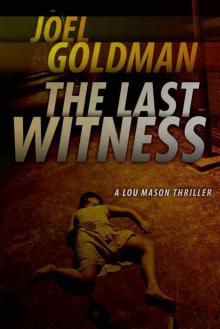 The last witness lm-2
The last witness lm-2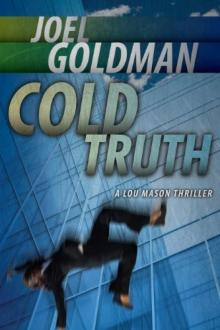 Cold Truth
Cold Truth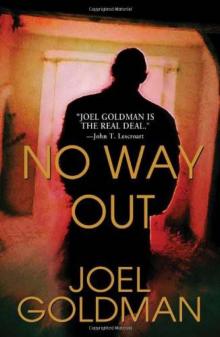 No Way Out (2010)
No Way Out (2010)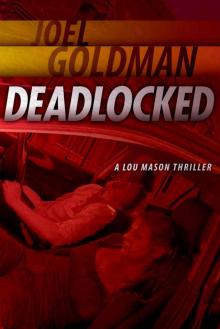 Deadlocked (Lou Mason Thrillers)
Deadlocked (Lou Mason Thrillers)![[Lou Mason 01.0] Motion to Kill Read online](http://i1.bookreadfree.com/i1/03/24/lou_mason_01_0_motion_to_kill_preview.jpg) [Lou Mason 01.0] Motion to Kill
[Lou Mason 01.0] Motion to Kill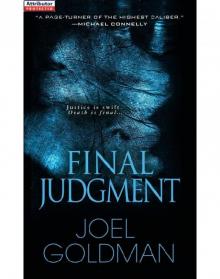 Final Judgment
Final Judgment Stone Cold
Stone Cold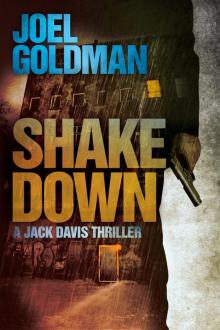 Shakedown
Shakedown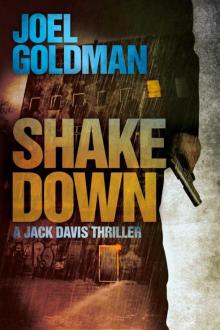 Shakedown jd-1
Shakedown jd-1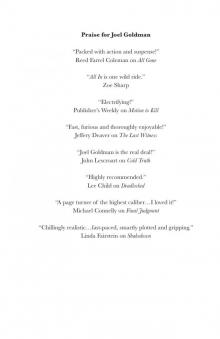 All Gone
All Gone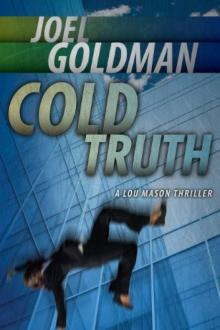 Cold truth lm-3
Cold truth lm-3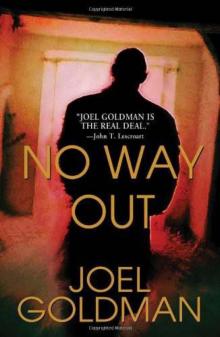 No way out jd-2
No way out jd-2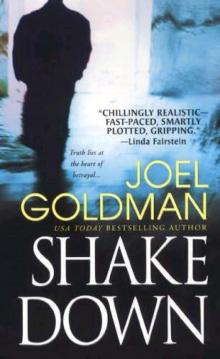 Jack Davis Mystery - 01 - Shakedown
Jack Davis Mystery - 01 - Shakedown Stone Cold as-1
Stone Cold as-1 Final judgment lm-5
Final judgment lm-5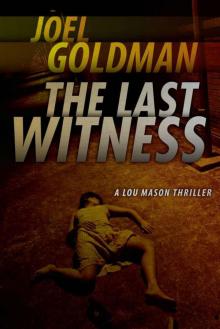 Lou Mason Mystery - 02 - The Last Witness
Lou Mason Mystery - 02 - The Last Witness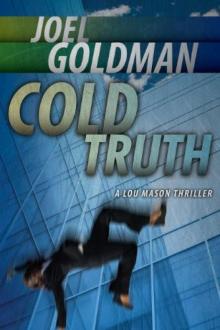 Lou Mason Mystery 03-Cold Truth
Lou Mason Mystery 03-Cold Truth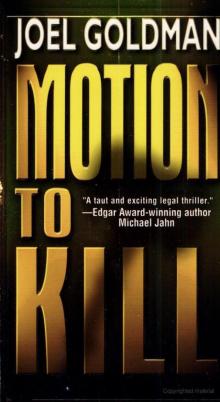 Motion to Kill
Motion to Kill Die, Lover, Die!
Die, Lover, Die!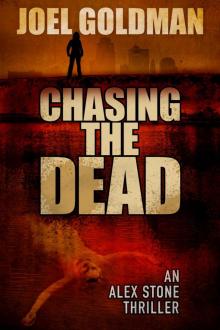 Chasing The Dead (An Alex Stone Thriller)
Chasing The Dead (An Alex Stone Thriller)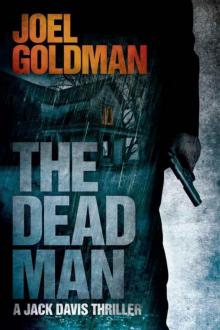 The Dead Man
The Dead Man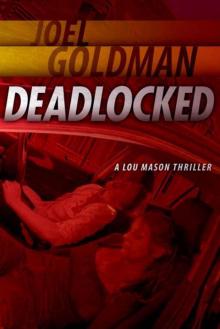 Deadlocked lm-4
Deadlocked lm-4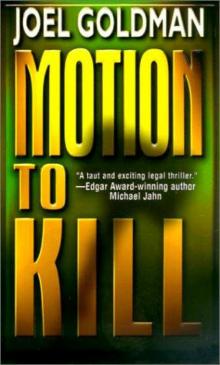 Lou Mason Mystery - 01 - Motion to Kill
Lou Mason Mystery - 01 - Motion to Kill Die, lover, die
Die, lover, die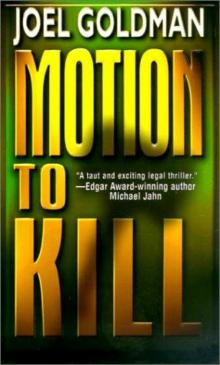 Motion to Kill lm-1
Motion to Kill lm-1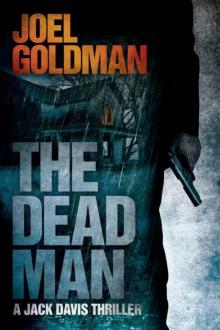 The Dead Man jd-3
The Dead Man jd-3